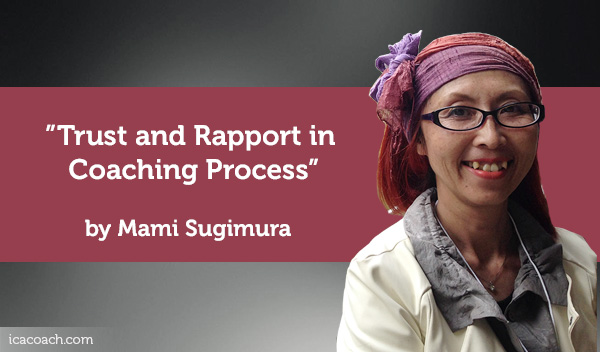
Coaching Case Study By Mami Sugimura
(Caregiving Coaching, UNITED STATES)
1. Who are the main players in this case study
This is a case study of my coaching journey with one of my clients who asked me to be part of. I changed their names for anonymity, and call the client as Lara, and the client’s spouse as Dave.
When Lara had contacted me, she had been stuck to be supportive to her husband, Dave, who had been suffering from depression. As Dave was very afraid of admitting his condition, and refused to take any medical professional’s help and treatment initially in spite of Lara’s countless convince over 3 months, she was exhausted, and felt stuck. And she couldn’t talk about it to her family and friends in her area due to her underline belief that she didn’t want to bother other people as much as possible. At the same time, she had been in dilemma by anticipating the worst scenario of no progress on Dave’s condition/behaviour, and his suicide.
3. What specific coaching skills or approach did you use in this case?
I know Lara for a long time, but when she contacted me, she was not ready to talk about it in detail. Through our casual talk, she sounded to be relieved and started showing her desire to talk about her problems. Then I tried to ensure safe environment between her and myself to let her talk comfortably. Coach Skills Course Outcome And skills of power listening, powerful questions, visualisation, underneath belief, self-awareness, AI, reframing perspective, creating actions, and accountability were applied through whole sessions.
4. Explain your process in detail
Once Lara was ready to talk about her issues, she expressed her gratitude that she was already so relived from the state of stagnation / frustration, as she couldn’t have allowed herself to talk about her issues to anyone.
While Dave started to develop depression gradually over 3 months, he tended not to get out from bed, not work, not go out, not socialize with friends, and asked Lara to stay home with him due to his heavy anxiety. She had taken a day off several times to take care of him, but the more the request’s frequency had increased, the more her frustration and anger also increased. She really loved her work, though it was very demanding. And as she set her performance standard high as her normal, those events affected her sense of being high performer.
At the first session, I asked her to visualize the situation of 3 months later, she paused for a while and said, “Dave got better by seeing a psychiatrist, a psychotherapist, and went out to see his friends.” Her clear goal was set up.
Then, I asked her how she made those happen. Though she had no clue where to go or who to ask for medical help at that point, she decided to do some research and found several prospective resources. Also she recalled that they she had a trusted friend who might be able to convince Dave to move forward. But she had hesitation for contacting the resource people.
I asked her what made her hesitate, and what was important for her to achieve her goal. Her hesitation came from one of her core values of “respect” to others. She didn’t want to bother other person for their stagnated situation. I asked her reframing perspective changing questions about her underneath belief of “respect”.
At a result, she seemed to widen her sense of “respect”, and realize that the particular person’s involvement would be not only critically powerful to break through the situation, but also deepen the relationship with the person. Then she decided to contact him.
Since the second session, I learned from her that the critical key person came to their house and convinced him to take Dave’s first baby step of talking about his condition. Since then, she confirmed Dave’s readiness/ will before she moved forward to connect other medical resources through her another trusted personnel’s best recommendations.
Eventually Dave had been moving into treatment process successfully. During the 3 months, she contacted me to update the progress, and I asked how she felt about it. Every time Dave made a new step to get better, she felt not only relieved, but also sensed accomplishment with confidence. As the result of Dave’s built up baby steps, he got much better, and set up a new habit like doing exercise and doing meditation regular basis to sustain himself in state of “feel better”.
5. What were the results of your process? Was your coaching/program effective? Why? Why not?
Amazingly it turned out very successfully. In spite of under the sensitive/difficult circumstance, many learning from this coaching program helped me very effectively as follows:
- Sort out the situation by active listening and asking open-ended questions.
- Set up goals/milestones with paying attention about the client’s response/ words/ behaviours.
- Be accountable and empower the client to move forward.
6. If you could approach this problem again, what would you do differently?
I was quite happy with this approach. If I approach this problem again, I might try to dig in deeper underneath belief / reframing perspectives / selfawareness at little earlier stage.
7. What are the top 3 things you learnt from this experience?
- Rapport is vital to continue sessions especially for sensitive matters.
- Trust that clients have answers/ clues in their knowledge base. We as a coach help their journey from self-awareness to plug in to their knowledge base.
- Empower the client.